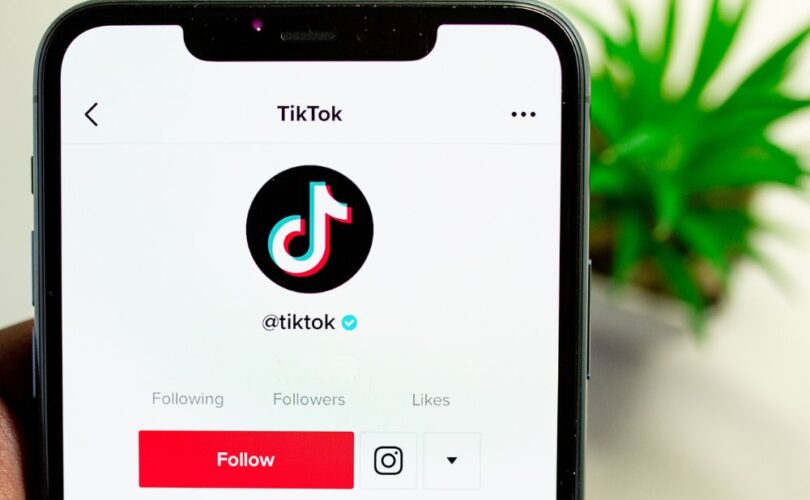You have probably seen TikTok frequently discussed on the news and social media over the past few years, especially within the last 6 months. There has been a growing number of publicized security concerns that China may use the information gained from the app for nefarious purposes. Some of those security threats are targeting individuals with their personal and financial information, and purchasing habits, along with a slew of major national and international cybersecurity concerns.
Originally launched in 2016, the app TikTok now has over 3.5 billion downloads and consists of 15-second to 60-second videos. It became the dance sensation app that it is today in 2018, and is said to be valued at around $50 billion. According to Investopedia, 40% of TikTok users are between the ages of 18 and 24; 56% identify as female; around 141 million of its users are American; and, the average amount of time spent on the app watching videos is around 46 minutes per day. It is also well known that the version of TikTok in China, Douyin, differs from the American version as the content in China is much more regulated and directed.
TikTok in 2020
During the Covid-19 pandemic, mandates, and lockdowns, the Chinese phone app TikTok gained significant popularity for promoting viral dance videos made by everyday workers, nurses, doctors, construction crews, and people stuck indoors. TikTok inspired new choreographed dance routines, helped improve dance videos with timing adjustment software, and provided an outlet that many were desperate to find. TikTok helped promote many songs and viral hits that have become a daily part of life, as trends, for people around the world through social media. However, with the rise of TikTok’s success, there came many questions and concerns. Today, TikTok may have money that doesn’t jiggle-jiggle, but the company may soon fold.
Throughout 2020 and 2021, US President Donald Trump wanted to completely nullify and ban TikTok, along with its Chinese counterpart Douyin, in the United States. However, he was unable to complete that task due to Constitutional infringements and various other legal issues. Trump’s tactical strategy was, in part, related to the international tariff wars imposed on China by the United States beginning in 2018. While simultaneously, United States national security departments and personnel was genuinely perturbed by misinformation and artificial intelligence influences on political activities conducted through TikTok.
TikTok Security updates 2022
According to Associated Press News, on December 2nd, 2022, speaking to students at the University of Michigan, FBI Director Christopher Wray stated his worries about TikTok regarding US national security. “[TikTok] allows [China] to manipulate content, and if they want to, to use it for influence operations,” including data acquisition for more traditional espionage operations.
The main concern is that information is being extracted from phones, and there are fewer formal procedures for acquiring that information by China and the Chinese Communist Party than in many other countries. It is believed that China is using this technology to conspire and influence elections, manipulate markets, empower artificial intelligence bots on social media, incite conflicts and distrust, and produce misinformation and disinformation against the American people and the US government. Many governments around the world, especially those who are allies to the US, have also spoken up in agreement that TikTok may actually be a deeper threat than merely producing deep fakes. Governments worldwide will actively begin censoring TikTok for government devices.
TikTok Security Threats 2023
On February 27th, 2023, the White House, and US President Joe Biden, announced that by the end of March 2023, all US government agency phones would not be allowed to have TikTok or any apps from its parent company ByteDance Limited. “Pursuant to the Act, this memorandum applies to ‘the social networking service TikTok or any successor application or service of TikTok developed or provided by ByteDance Limited or an entity owned by ByteDance Limited.’”
Although removing the app from most, if not all, government devices does not guarantee less Chinese CCP interference or artificial intelligence targeting tactics. However, it does help establish a less arbitrarily invasive movement for social media platforms and apps, while protecting the integrity of data acquired. ByteDance recently provided a response to market and government concerns by saying they will be more delicate with handling data acquisition, allow for freedom of expression on the app from places outside of China, and discourage misinformation.
Once TikTok loses enough influence in the US and around the world, many other apps will make up for the losses in entertainment and influence such as Instagram, Facebook, Snapchat, and YouTube. Each of these platforms has directly competed against TikTok in providing more short clips and attention-grabbing content that many Gen Z and youth enjoy. Some newer apps may also surpass these well-known platforms, such as Triller, Byte (owned by Twitter), Clash, Likee, and Dubsmash.







